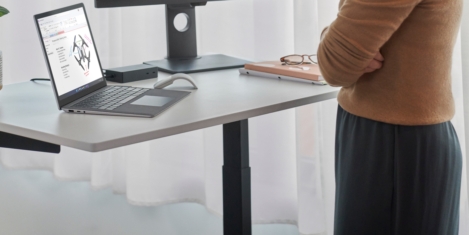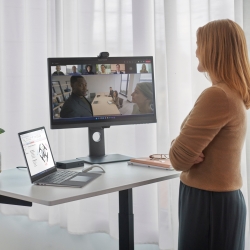June 9, 2022
Work-life balance more important than pay for two thirds of people
 Rising inflation and the UK’s cost-of-living crisis have put a lot of pressure on employers to increase wages and starting salaries this year, but a new survey suggests that there’s something that employees value more than pay – work-life balance. HR and payroll software provider CIPHR polled over 1,000 UK workers to find out which job aspects matter most to them. Based on the results, over two-thirds (70 percent of women and 65 percent of men) see work-life balance – albeit a term that can mean different things to different people – as being more important than their pay and employee benefits combined (selected by 60 percent of women and 57 percent of men). More →
Rising inflation and the UK’s cost-of-living crisis have put a lot of pressure on employers to increase wages and starting salaries this year, but a new survey suggests that there’s something that employees value more than pay – work-life balance. HR and payroll software provider CIPHR polled over 1,000 UK workers to find out which job aspects matter most to them. Based on the results, over two-thirds (70 percent of women and 65 percent of men) see work-life balance – albeit a term that can mean different things to different people – as being more important than their pay and employee benefits combined (selected by 60 percent of women and 57 percent of men). More →













 Employees with full autonomy to choose where they work are happier in their job, yet only one in five are currently able to do so. And though 60 percent of all employees prefer hybrid working, only 39 percent are able to flexibly split their time between the home and office. This is according to Jabra’s 2022 edition of the
Employees with full autonomy to choose where they work are happier in their job, yet only one in five are currently able to do so. And though 60 percent of all employees prefer hybrid working, only 39 percent are able to flexibly split their time between the home and office. This is according to Jabra’s 2022 edition of the 


 Do organisations truly understand how their people work? A big question that needed some unpacking and was explored at a recent Workplace Evolutionaries event, led by Tim Allen and Mark Eltringham. This is raw audio from the event so includes a brief chat about dogs and some other stuff.
Do organisations truly understand how their people work? A big question that needed some unpacking and was explored at a recent Workplace Evolutionaries event, led by Tim Allen and Mark Eltringham. This is raw audio from the event so includes a brief chat about dogs and some other stuff. 


















